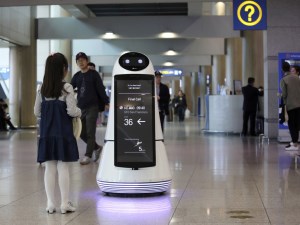South Korea has introduced what is being called the world's first tax on robots amid fears that machines will replace human workers, leading to mass unemployment.
In a move aimed at slowing down automation the South Korean government will limit tax incentives for investments in automated machines as part of a newly proposed revision of its tax laws.
Currently, enterprises that have invested in industry automation equipment are eligible for a corporate tax deduction.
It is hoped the policy will make up for lost income taxes as workers are gradually replaced by machines, according to a recent report in the Korea Times.
It will also help to fill welfare coffers ahead of an expected rise in unemployment.
The proposal could come into force at the end of the year, when the country's current tax law is due to expire.
"Though it is not about a direct tax on robots, it can be interpreted as a similar kind of policy considering that both involve the same issue of industrial automation," an industry source told the Korea Times.
Korea is the first country to implement a robot tax, but it is not the only one to have proposed a technology levy.
Need to slow down the pace of change
Microsoft founder Bill Gates has previously called for a tax on robots to balance the Government's income as jobs are lost to automation. He said the levy could help slow down the pace of change and provide money to hire additional employees in sectors that require people, such as health care.
"Right now, the human worker who does, say, $50,000 worth of work in a factory, that income is taxed and you get income tax, social security tax, all those things," said Gates earlier this year. "If a robot comes in to do the same thing, you’d think that we’d tax the robot at a similar level."
He also stressed that there are still many jobs that need human hands and minds and thus cannot be properly replaced by robots.
Companies and robotics companies have criticised such proposals, claiming a tax on robots would be detrimental to businesses and impede innovation.
The International Federation of Robotics (IFR) says a robot tax would undermine proper competition and technological innovation in the robotics sector.
Industries most at risk from automation include transportation, manufacturing and waste management, according to PwC. Robots are less likely to replace humans in roles that require critical thinking and creativity.


